Have fun exploring and defining your own unique landscape design style and garden-style themes with this garden style quiz. Begin to learn how to build off tried and true garden styles and design techniques from around the world so you know how to make your garden your own.
Taken straight from the pages of the original Garden Style book – Cultivating Garden Style, published by Timber Press in 2015 and written by me 🙋♀️ – Rochelle Greayer – this is a starting point for learning how to see the landscape, art, design, and your garden differently.
Let me tell you a little story – My book – Cultivating Garden Style (check out the fun book trailer) – was published in 2014. This means I wrote it and planned all the publicity for its release in 2012 and 2013.
This quiz is a bit of fun – in fact, it is the original quiz that I worked out as part of a publicity package back in 2013. At the time, Buzzfeed quizzes were the rage, and nothing else like it existed. Now, of course, if you google garden style or landscape design style quiz, you will get lots of results. The original has been copied a bunch of times – that is how the internet works. Put something novel out there and watch while lots of people take it, twist and spin it, and try to make it into something else. That’s ok – I mean, I was inspired by BuzzFeed. But sometimes, when these sorts of copycats start spinning and twisting, they lose the original plot and have no idea of the underlying idea. In this case – most of them lost the whole point and the bigger picture.
The bigger point was never to give you any sort of quiz-determined garden-style formula – but rather, to show you how you can and should be creating your own.
Don’t make this quiz into something it isn’t.
Here’s the truth about garden styles and quizzes like this – no quiz is going to give you a real insight into yourself, and it also is utterly impossible for me to ask you a handful of questions and then be able to tell you how to combine what makes a style that accommodates your taste and all the factors that you have predetermined by your project.
Here is what I can do – I can teach you about design in general. Principles – that make any style work. I can also teach you about major movements in design history where new techniques and ways of thinking have evolved. There are things that work timelessly, and there are trends, and there are ways to solve problems, and it is a never-ending evolution.
We are still identifying past styles (like this one about the gardens of African Americans in the southern United States that I wrote about recently). And we are constantly recycling old knowledge into new knowledge. Currently, the landscaping and garden-making communities are collectively trying to cope with and tackle planetary climate changes. From this, new design movements will emerge. And as you become a person who cares more, learns more, and understands more about your surroundings and the ecosystem that you live in, you will naturally be part of those movements. They will impact your ‘garden style’.
How many Garden Styles are there?
My book has 23 chapters – each a unique style. Within each chapter, there are four additional niche versions of that ‘style’. So, really, it is more than 100 modifications to those garden styles – each it’s own unique thing. However, a book only has so many pages, meaning we have to put boundaries around it. The truth is, the possible results are undefinable. It is math, where the permutations are infinite.
Design movements emerge out of a whole range of inputs, from socioeconomic factors to politics to shifts in time and nature. They are responses to the unique conditions of a time and place.
And understanding design means understanding why things are the way they are.
Take Dutch gardens (for example). They are the way they are because of the flatness of the landscape they emerged from. But they are also the way they are because of the plant supply chain and capacity of the plant markets in the Netherlands. (Which BTW are very different than what we have in North America).
These types of Piet Oudolf-style gardens are harder to create in other areas for some very practical design and industry reasons. You can make them – and they are great inspiration – but you will be more successful if you understand how and why they are the way they are and then learn how to translate them into your own vernacular.
Similarly – you might be interested in Islamic or Japanese gardens. These styles are also in response to the places they emerged from (a Middle Eastern desert or a rocky, damp island, respectively), but they also account for belief systems and cultural attitudes. They aren’t something that would emerge in modern American suburbs today. But they are rich sources of garden ideas and ecological knowledge for making our current landscapes better.
I find there is little point in making a home garden that is a slave to any style. Doing that will limit your creativity and result in something that probably won’t make sense to your life or community. Instead – you need to learn to synthesize the inspiration into your own new style.
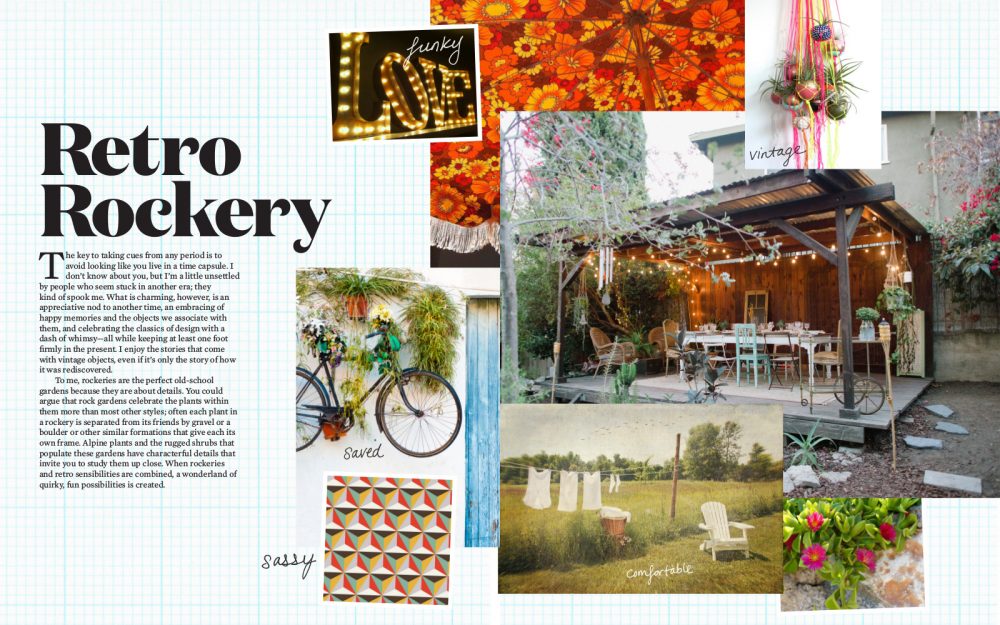
Making your own landscape design style
There are infinite garden styles and themes. As you develop your original landscape plan, and as you start to plant and evolve and learn and make, you will begin to create your own. No one else will have it; you can name it whatever you want, and if you do it right – it will be absolutely perfect for you, your life, and your place on this planet.
This quiz is going to do little more than (hopefully) open your eyes to possibilities. It will (hopefully) help you realize that your style is the culmination of all the things you are drawn to in life – from cocktails to quotes to music and color. These are the building blocks of your aesthetic. If you layer that aesthetic with practical design skills and a good dose of knowledge of the long history of humans making beautiful and functional spaces on the land where we live, then you will begin to get to the heart of garden design and garden style.
So – take this garden-style quiz many times. Play with the answers until you see all the options (there are eight possible answers here – a far cry from infinity😉). But hopefully it will get you feeling a little more creative and excited to get started.
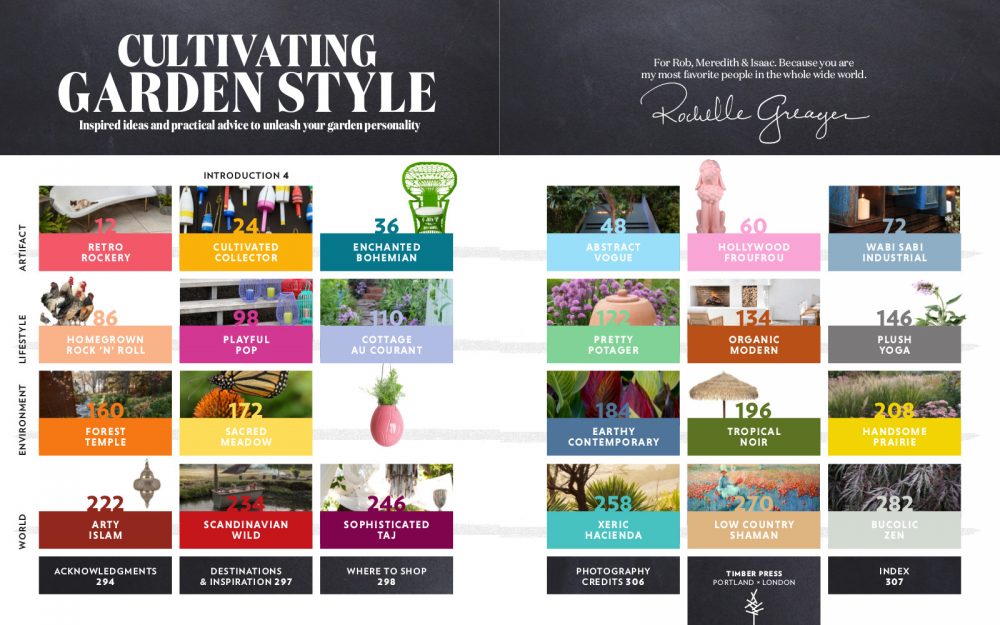
If you want to dig deeper, I invite you to stick around and just keep clicking through this website. It has been built by me since 2007.
Garden design, its history and evolution, its future and best practices, and its best practitioners and sheer beauty are a deep well of topics to explore. From English gardens to Mediterranean gardens to Japanese gardens (and countless styles associated with unique cultures or places) to places that rely on art and science (consider sculpture gardens and places for wild water features throughout history). The formal garden contrasts with the loose and flowing layout of a casual country garden and gardens for in-town
The design-style answers you get in this quiz are just for fun. They arre to give you an idea about how you might start to connect all the decisions you make and markers of your style to create a
These styles are built off some major design movements, and they may work better for some landscapes. (For example – if you have a wooded area – the Forest Temple Design is likely going to be a little easier to achieve). If you are a Forest Temple person – but you like in the desert – you can still make an ecologically sound garden in your style – you just need to work creatively with the materials and plants at your disposal. Horticultural rules and restrictions tend to hold fast – but styling is the fun part – and a huge part of the art of garden design.
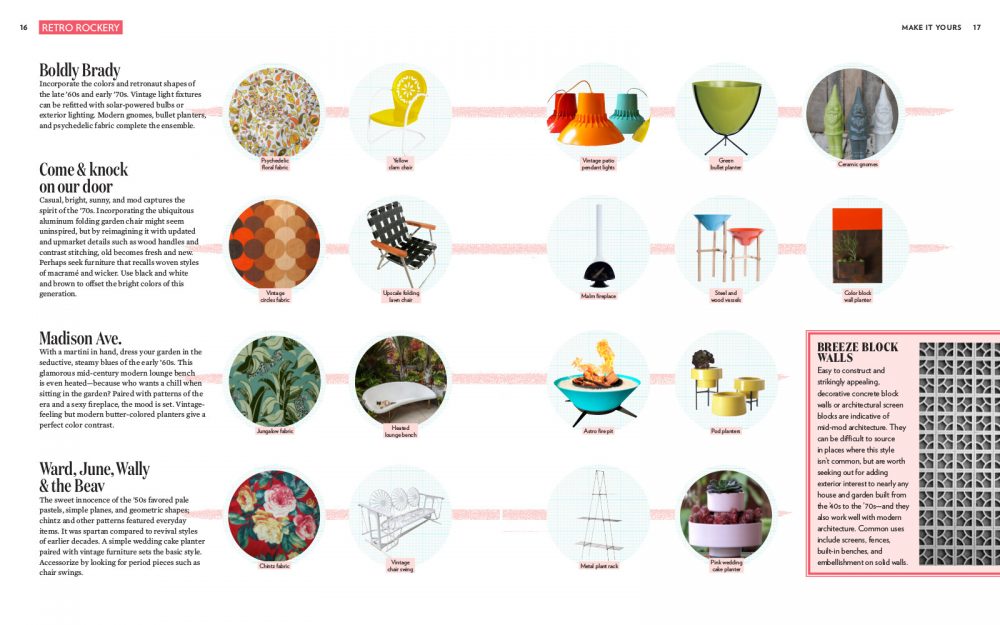
So – have fun with this landscape style quiz – but don’t take it too seriously – use it to get inspired, and use it as a jumping-off place to learn about what is best suited for your unique place so that you can start to imagine and understand your own dream garden and tranquil respite.
Take the Quiz!
More Garden Style posts to inspire your garden-making adventure.
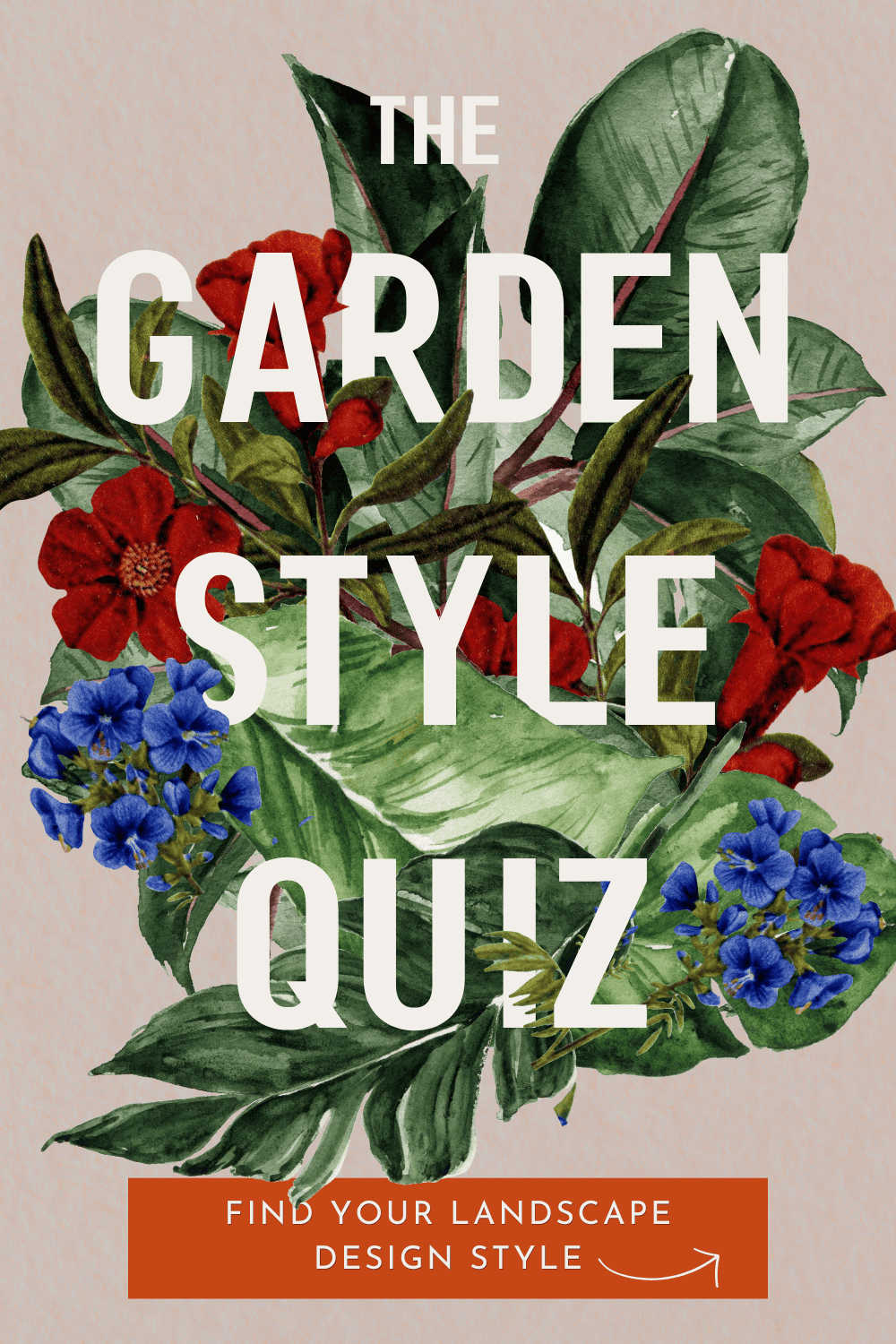

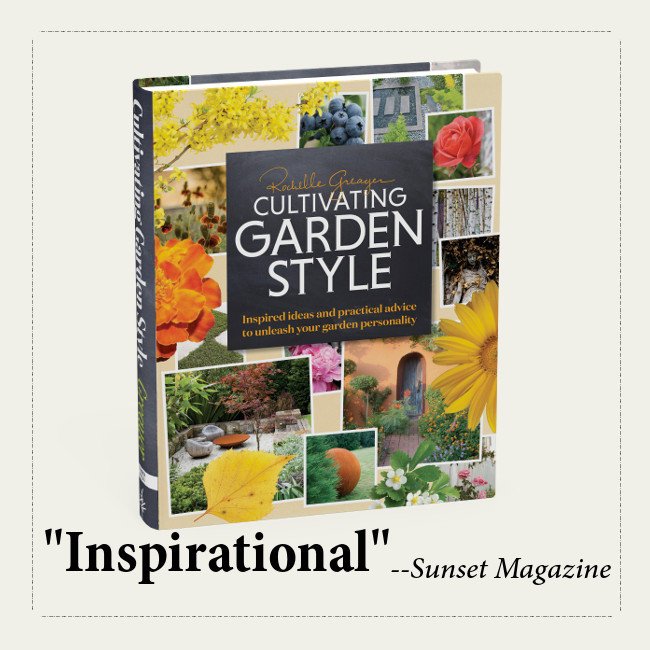
Where’s the quiz?
Hi Jana – It is linked at the bottom and also is started with the big orange button right at the bottom of the first image on this post.